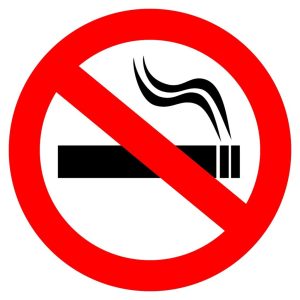
While asthma is the most common lung disease, millions of people experience the somewhat lesser-known lung condition emphysema. This disease interferes with your ability to breathe, resulting in wheezing, shortness of breath, and other complications.
Emphysema cannot be cured, which is just one reason why caring about the health of your lungs is important. If you do develop emphysema, early detection and treatment can improve your quality of life.
What Is Emphysema?
Both emphysema and chronic bronchitis are types of chronic obstructive pulmonary disease (COPD). These are lung diseases that make it more difficult for you to breathe.
Like similar pulmonary conditions such as asthma, COPD can cause inflammation in the bronchial tubes, restricting airflow. In particular, emphysema occurs when there is damage to the air sacs or alveoli inside your lungs.
Normally, these alveoli expand and contract with your breathing. When they’re damaged, they lose some of their elasticity, becoming non-compliant and making it harder for your lungs to exchange oxygen and carbon dioxide inside the lungs.
Additionally, emphysema can also destroy the walls of some smaller alveoli. The larger alveoli that are left behind are fewer in number and don’t function as effectively, which creates difficulty breathing.
Symptoms of Emphysema
The symptoms of emphysema are similar to those of other pulmonary diseases. They typically start off mild, mirroring a bad cold or chest infection, and get worse over time without treatment.
Common symptoms include shortness of breath, wheezing, chest tightness, and coughing, especially coughs that produce significant amounts of mucus. You may also hear a whistling sound when you breathe.
Complications of Lung Conditions
Emphysema can make you more susceptible to colds, the flu, and other respiratory conditions, including sleep apnea. In most cases, these complications are limited to the lungs, but late-stage emphysema and COPD can also affect other areas of your body.
You may notice swelling in your limbs, particularly around your legs, ankles, and feet. The muscles in your legs and lower torso may grow weaker over time, and some people with emphysema have significant weight loss.
Causes of Emphysema
There is no long-term effective cure for emphysema, but most people can prevent it by avoiding one of its biggest risk factors: smoking. Nearly all cases of emphysema are the result of a lung irritant of some kind, though a few people develop the lung condition from genetic causes.
Smoking

As many as 15-20% of smokers will develop emphysema at some point in their lives. This risk goes up the longer you continue to smoke, as the alveoli in your lungs are damaged even more with continual exposure to cigarette smoke.
Additionally, those who are exposed to secondhand smoke have a higher risk of developing emphysema as well.
The best way to prevent emphysema and other lung conditions is to quit smoking as soon as possible. This can slow the decay of your lung health and help you stave off the condition.
Other Irritants
Other lung irritants can also damage your lungs and increase your chances of contracting COPD. These typically include pollutants in the environment, such as car exhaust, smog, dust particles, and chemical irritant exposure during construction and similar occupations.
If you work a potentially hazardous job, make sure to follow the safety precautions to protect your lungs. Wear a mask when working with potentially dangerous gases of any kind.
Genetics
Rarely, the condition of emphysema develops from a genetic predisposition. People who have alpha-1 antitrypsin deficiency are more likely to develop COPD, and they have a higher risk of contracting liver disease as well.
A family history of COPD can also increase your risk of emphysema, indicating that genetics may play a role in determining which smokers will contract it.
Managing Pulmonary Diseases Like COPD
If you have emphysema or another form of COPD, it’s important to know what situations can aggravate your condition. Minimize your risk of lung infections by practicing good personal hygiene.

Some doctors may recommend oxygen therapy and medications. Ensure you stick to your medication schedule if you have one.
Additionally, make lifestyle changes like eating better and getting routine exercise to support your overall physical health. Breathing fresh air as well as filtered air within your home can be very helpful for the condition.
Final Thoughts
Understanding emphysema is the best way to either reduce your risk of developing it or manage your condition. Treatment methods can vary, but if you adhere to your doctor’s advice and make an effort to make healthier choices, you can find the right method for you and continue to enjoy a high quality of life.
